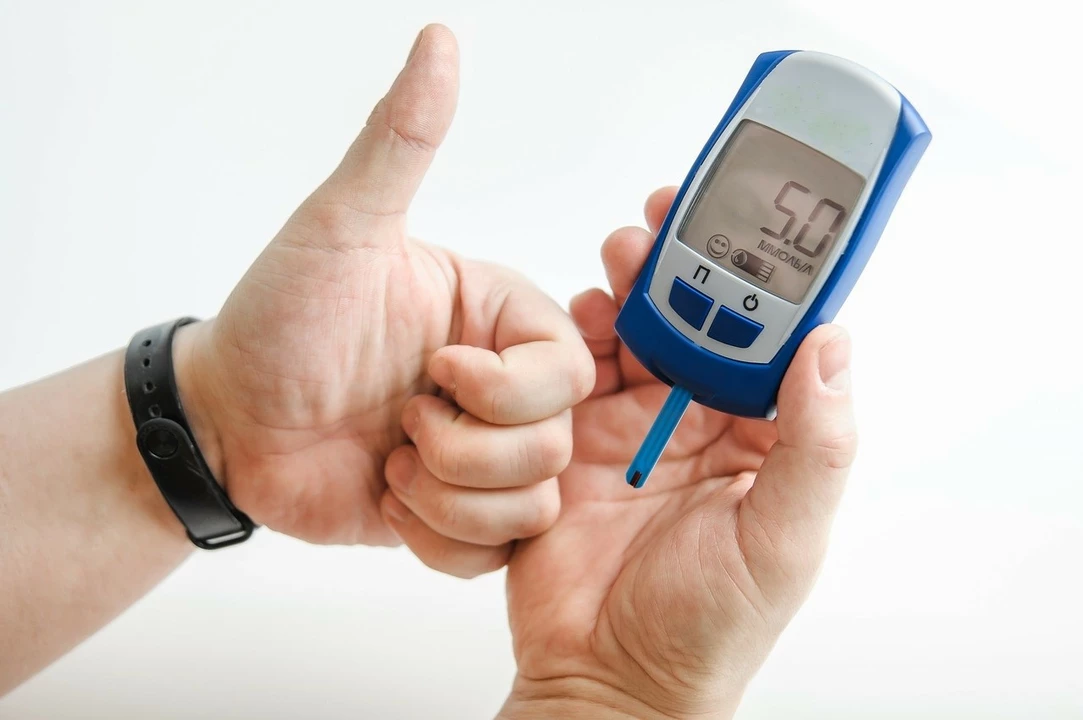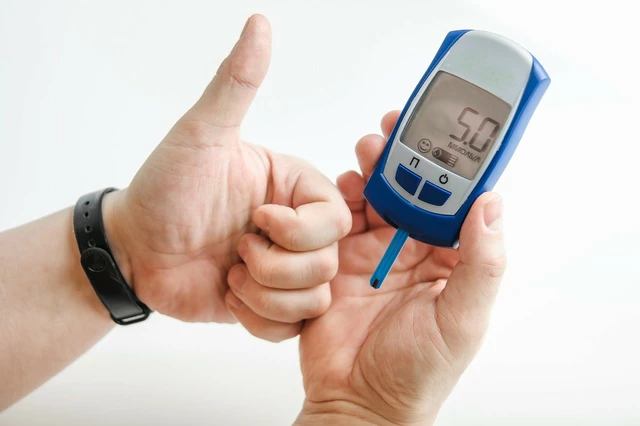Understanding Diabetic Gastroparesis and Its Effects on Blood Sugar
As someone living with diabetes, I know firsthand how important it is to maintain proper blood sugar control. One complication that can make this more difficult is diabetic gastroparesis. Diabetic gastroparesis is a condition where the stomach takes too long to empty its contents, often due to damage to the vagus nerve that controls the stomach muscles. This can lead to erratic blood sugar levels, making it challenging to manage diabetes effectively.
In this section, we will discuss how diabetic gastroparesis affects blood sugar control and the importance of understanding this relationship. By being aware of the connection between gastroparesis and blood sugar, we can adopt strategies to better manage our diabetes and improve our overall health.
Monitoring Blood Sugar Regularly and Adjusting Insulin Doses
One of the most critical steps in managing diabetic gastroparesis and blood sugar control is monitoring blood sugar levels regularly. This can help us identify patterns and make necessary adjustments to our insulin doses. With gastroparesis, blood sugar levels can be unpredictable, so it is essential to check them more frequently than usual.
To achieve better blood sugar control, we may need to adjust our insulin doses based on our blood sugar readings. This may involve increasing or decreasing the amount of insulin we take, or changing the times we administer it. It is always essential to consult our healthcare team before making any changes to our insulin regimen, as they can provide personalized advice based on our unique needs.
Dietary Modifications for Better Blood Sugar Control
Another crucial aspect of managing diabetic gastroparesis and blood sugar control is making dietary modifications. The right diet can help us manage gastroparesis symptoms and maintain better blood sugar levels. Some dietary strategies that have worked for me include:
- Eating smaller, more frequent meals: This can help prevent the stomach from becoming too full, which can worsen gastroparesis symptoms.
- Choosing easy-to-digest foods: Low-fat and low-fiber foods are easier for the stomach to process, which can help alleviate gastroparesis symptoms.
- Incorporating liquid meals: Liquid meals, such as smoothies or soups, can help ensure we receive adequate nutrition without exacerbating gastroparesis symptoms.
Remember, it is important to consult with our healthcare team before making any significant changes to our diet, as they can provide personalized recommendations based on our needs and preferences.
Managing Stress and Prioritizing Mental Health
We often overlook the importance of mental health in managing chronic conditions like diabetic gastroparesis and blood sugar control. Stress can worsen gastroparesis symptoms and make it more difficult to manage blood sugar levels. Therefore, it is essential to prioritize our mental health and develop effective stress-management techniques.
For me, some strategies that have helped include regular physical activity, practicing mindfulness meditation, and engaging in hobbies that bring me joy. Additionally, it is vital to have a strong support system in place, whether that involves friends, family, or support groups for individuals with diabetes or gastroparesis. By effectively managing our stress and prioritizing mental health, we can improve our overall well-being and better manage diabetic gastroparesis and blood sugar control.
Working Closely with Your Healthcare Team
Finally, one of the most important strategies for successfully managing diabetic gastroparesis and blood sugar control is working closely with our healthcare team. Our doctors, nurses, dietitians, and other healthcare professionals can provide invaluable guidance and support throughout our journey.
Regular appointments are essential to monitor our progress, discuss any concerns, and make adjustments to our treatment plan as needed. Additionally, we should never hesitate to reach out to our healthcare team with any questions or concerns that may arise between appointments. By maintaining open communication and actively participating in our care, we can achieve better blood sugar control and improve our overall quality of life with diabetic gastroparesis.








Kristen Woods May 5, 2023
My dear, this revelation is utterly despirating!
Carlos A Colón May 5, 2023
Oh, because nothing screams ‘fun weekend’ like a stomach that decides to take a sabbatical from emptying. I guess we’ll just have to celebrate those unpredictable glucose spikes with a glass of… patience.
Aurora Morealis May 6, 2023
Reading this made me think about the importance of timing meals. Small frequent meals really can help the stomach. It also reduces the risk of spikes.
Sara Blanchard May 6, 2023
It’s crucial that we recognize each person’s unique experience with gastroparesis, and adapt our strategies accordingly. Sharing culturally relevant food options can make the diet feel less restrictive.
Anthony Palmowski May 6, 2023
Seriously??? This post is just a jumble of generic advice!!! Where’s the real data??? I’m tired of the same recycled tips!!! Do the authors even read the latest studies???
Jillian Rooney May 6, 2023
Honestly, if we all just followed the basic guidelines, we wouldn’t be in this mess. It’s not rocket science, people-eat low‑fat, low‑fiber, and stop blaming the system for every hiccup.
Rex Peterson May 6, 2023
The interplay between autonomic neuropathy and gastrointestinal motility raises profound questions about the holistic nature of diabetes management.
When the vagus nerve falters, the stomach's capacity to coordinate emptying is compromised, leading to a cascade of metabolic disturbances.
Such disturbances are not merely physiological artifacts but reflect the deeper integration of bodily systems.
Therefore, any attempt at glycemic control must address the root cause rather than merely treating surface symptoms.
Regular monitoring serves as the empirical backbone of this endeavor, offering quantifiable feedback loops.
Yet, the data obtained from glucose meters must be interpreted within the context of delayed gastric emptying.
Insulin dosing, consequently, requires a nuanced approach that anticipates temporal mismatches between carbohydrate absorption and insulin action.
Dietary modifications, particularly the emphasis on low‑fat, low‑fiber meals, function as a pragmatic strategy to mitigate these mismatches.
Moreover, incorporating liquid nutrition can provide a controlled medium for nutrient delivery, smoothing the glycemic curve.
Psychological well‑being, often overlooked, exerts a non‑trivial influence on both adherence and physiological stress responses.
Stress activation of the hypothalamic–pituitary–adrenal axis can exacerbate gastroparesis, thereby compounding glycemic volatility.
Consequently, mindfulness practices and regular physical activity become adjunctive therapies of genuine therapeutic value.
The collaborative relationship between patient and multidisciplinary healthcare team embodies the principle of shared decision‑making.
Open communication ensures that therapeutic adjustments are timely, evidence‑based, and aligned with individual preferences.
In sum, the successful navigation of diabetic gastroparesis demands an integrative paradigm that harmonizes monitoring, medication, nutrition, and mental health.
Candace Jones May 6, 2023
Your outline captures the big picture well. As a practical tip, try using a timed insulin pump setting to align with your liquid meals.
Robert Ortega May 6, 2023
I appreciate both perspectives; balancing technology with personalized nutrition often yields the best outcomes.